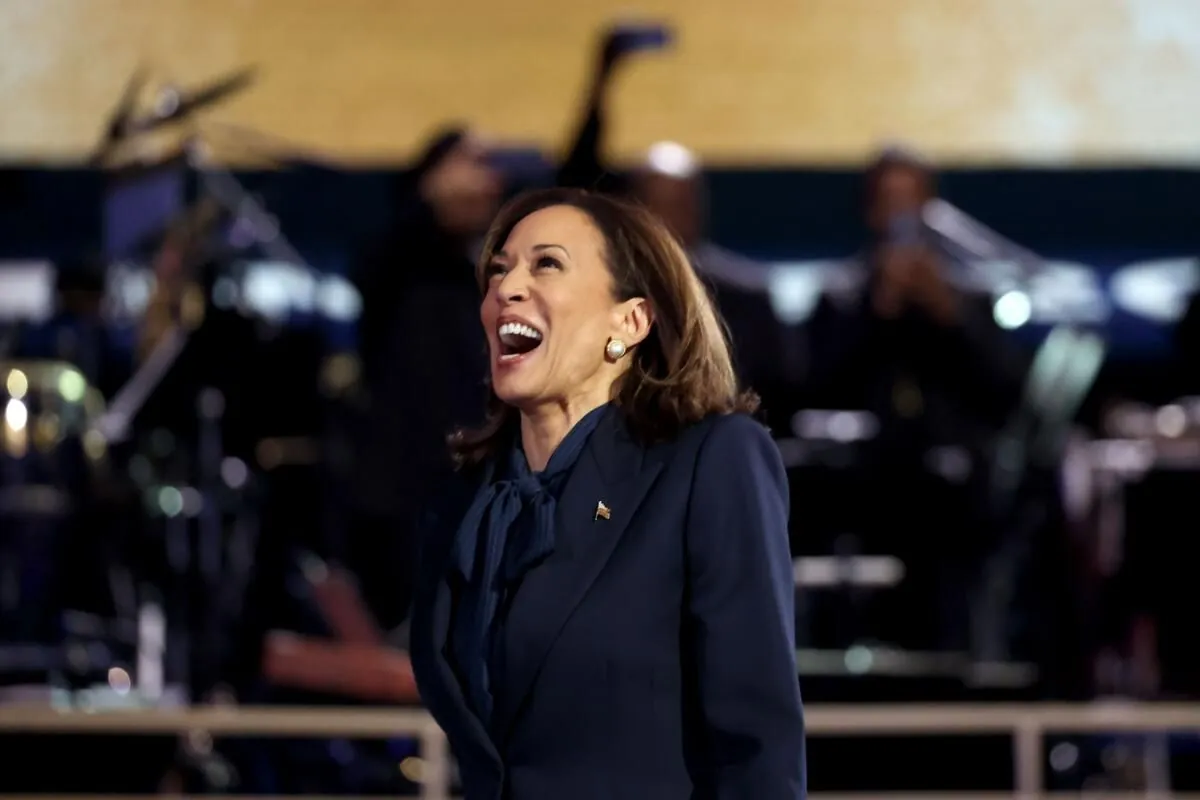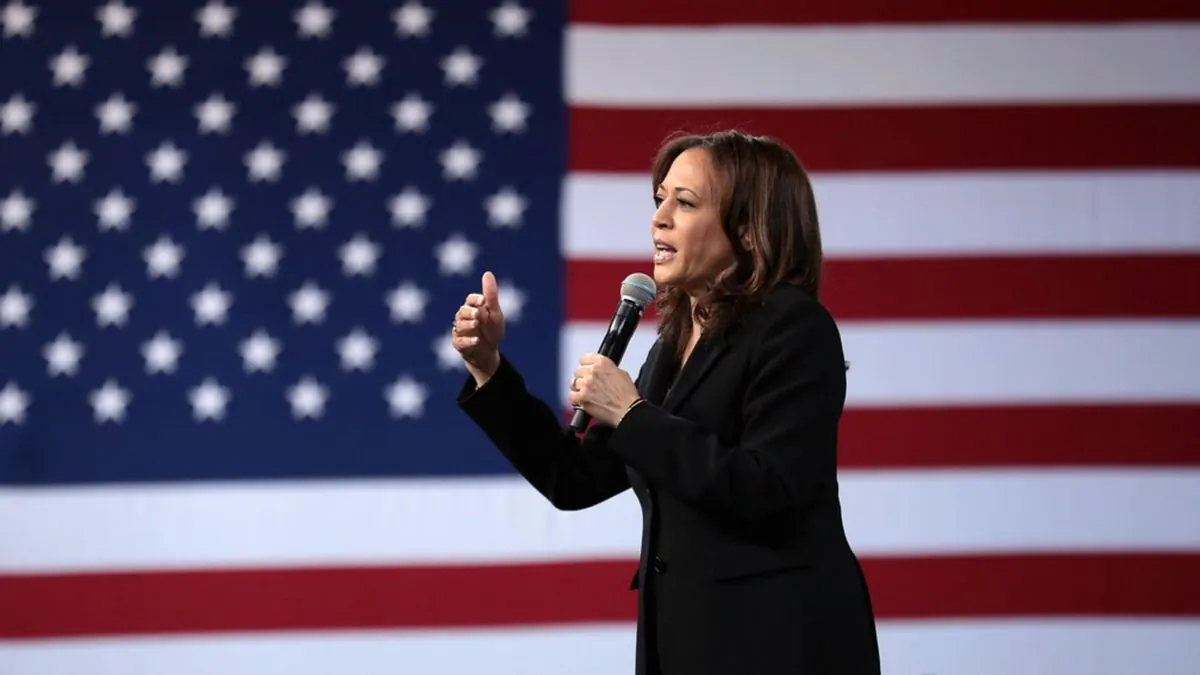Harris Accepts Democratic Nomination, Outlines Foreign Policy Vision
Vice President Kamala Harris formally accepted the Democratic presidential nomination, emphasizing strength and freedom in her foreign policy stance. Experts analyze her potential approach to global issues and Middle East conflicts.

The Democratic National Convention (DNC) in Chicago concluded on August 22, 2024, with Vice President Kamala Harris formally accepting her party's presidential nomination. The event, attended by prominent figures such as Oprah Winfrey and former presidents, marked a significant milestone in Harris's political career.
In her acceptance speech, Harris focused on projecting strength and emphasizing American values. She declared, "I will ensure America always has the strongest, most lethal fighting force in the world," while also highlighting the importance of competing with China in emerging technologies. This rhetoric aligns with her background as a former prosecutor and her experience in national security matters during her tenure as vice president.
Experts Anne-Marie Slaughter and Matt Duss provided insights into Harris's foreign policy approach. Slaughter, a former State Department official, noted that Harris's speech was deeply patriotic and centered on the theme of freedom. She observed that Harris skillfully connected domestic issues to international concerns, presenting a unified vision of American leadership.

Harris's stance on the Middle East, particularly the Israel-Gaza conflict, drew attention. While expressing support for Israel's right to defend itself, she also acknowledged Palestinian rights, stating, "The Palestinian people can realize their right to dignity, security, freedom, and self-determination." This balanced approach suggests a potential shift from the current administration's policies, although some critics argue for more concrete actions.
Harris's foreign policy team, led by Phil Gordon and Rebecca Lissner, is expected to bring a pragmatic and competent approach to global issues. Their recent publications indicate a move towards a less hubristic American foreign policy, focusing on maintaining a rules-based international order without resorting to regime change tactics.
The potential Harris doctrine may encompass a broader range of national security concerns, including climate change, development crises, and global health issues. Her background and diverse heritage could lead to increased focus on regions like Africa and Latin America, reflecting the changing demographics and priorities of the United States.
"I expect from her a much more integrated focus on the full spectrum of national security."
As the first woman, African American, and Asian American to potentially lead U.S. foreign policy, Harris brings a unique perspective to international relations. Her emphasis on opportunity and the power of America's example suggests a foreign policy that balances traditional security concerns with broader global challenges.
While maintaining a strong stance on issues like Ukraine and China, Harris appears to be charting a course that reflects both continuity and change in American foreign policy. As the campaign progresses, her vision for America's role in the world will likely continue to evolve, shaped by both domestic priorities and global realities.


































